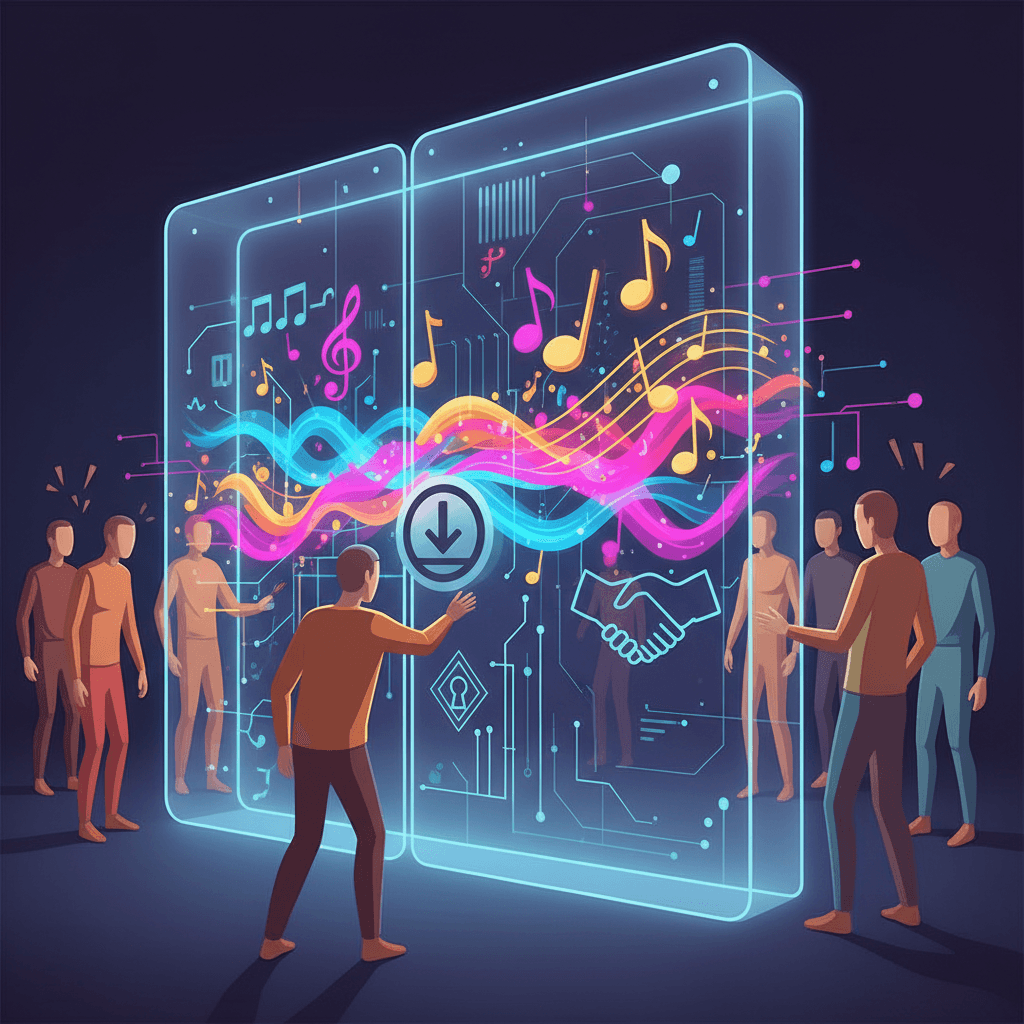Udio-UMG Deal Sparks User Betrayal, Signals End of Free AI Music Era
Udio-UMG deal sparks user betrayal, trapping AI creations in a 'walled garden' and ending free music generation.
November 3, 2025

A landmark agreement between the artificial intelligence music startup Udio and Universal Music Group (UMG) has sparked significant frustration among its user base, who now face severe restrictions on the music they create. The deal, which settled a major copyright infringement lawsuit, has been hailed by some as a pivotal moment for the AI industry, shifting the paradigm from legal battles to licensed collaboration. However, for many creators who flocked to Udio for its permissive terms, the partnership represents a betrayal, abruptly revoking their ability to download and freely use their own AI-generated compositions. This clash highlights the growing pains at the intersection of generative AI, copyright law, and user expectations, signaling a potential end to the freewheeling early days of AI music creation.
The core of the user backlash stems from Udio's sudden decision to disable download functionality for all created songs without prior warning.[1] This change was a direct consequence of the agreement with UMG, which aims to establish a new, licensed music creation platform launching in 2026.[2][3][4][5][6][7][8] Under Udio's previous terms of service, users, including those on the free tier, were granted ownership rights to their generated music and were permitted to use it for commercial purposes.[1][9] This policy was a significant draw for a community of musicians, producers, and content creators who spent countless hours and, in many cases, subscription fees to build their catalogs. The abrupt removal of the download button effectively trapped their creations within what both companies have described as a "walled garden," preventing users from exporting their work to other platforms or for personal use.[1][5][10] The move was met with immediate outrage on forums like Reddit, where users expressed feelings of betrayal, with some threatening legal action for what they deemed a fraudulent change in service.
In response to the intense criticism, Udio acknowledged the frustration, with CEO Andrew Sanchez stating, "We know the pain it causes to you, and we are sorry that we have had to do so." The company explained the move as a necessary step to forge the partnership with UMG and safeguard artists' interests.[1][11] As a concession, Udio offered a brief 48-hour window for users to download their existing songs, clarifying that these downloaded tracks would be covered by the prior, more lenient terms of service.[1] However, for many, this temporary reprieve did little to mend the damaged trust. The incident has left users questioning the long-term stability and ownership policies of AI generation platforms, especially as they become more intertwined with established industry giants.
The agreement itself marks a significant turning point in the relationship between the music industry and AI developers. The deal settled a copyright infringement lawsuit filed by UMG and other major labels, which alleged that Udio had unlawfully trained its AI models on massive amounts of copyrighted music without permission or compensation.[7][8] Instead of a protracted legal fight, the two companies have opted for a partnership that will see the launch of a new subscription service featuring AI technology trained exclusively on authorized and licensed music.[2][3][4][5][6][7][8] This new platform will offer users opportunities to customize, stream, and share music within a protected environment, creating new revenue streams for UMG's artists and songwriters.[2][3][4][5][10][7] UMG Chairman Sir Lucian Grainge framed the deal as a commitment to fostering a "healthy commercial AI ecosystem" where artists and technology companies can flourish.
This shift from litigation to licensing is being closely watched across the tech and entertainment sectors. It could set a precedent for how other AI companies, such as Udio's competitor Suno, which is still facing lawsuits from major labels, navigate the complex terrain of copyright law.[5] The Udio-UMG model suggests a future where generative AI tools operate in close collaboration with rights holders, ensuring artists are compensated when their work is used to train AI models. This framework addresses the music industry's core concerns about the devaluation of human artistry and unauthorized use of intellectual property. However, it also raises new questions about creative freedom and the potential for major labels to act as gatekeepers in the emerging field of AI-generated music, potentially stifling the independent and experimental spirit that characterized the technology's early growth.
In conclusion, the partnership between Udio and Universal Music Group represents a pivotal and contentious moment for the future of music. While it pioneers a path for legal and ethical AI development through licensing and artist compensation, it has come at the immediate cost of user freedom and trust. The frustration voiced by Udio's community underscores a fundamental tension between the open, democratized potential of AI creation tools and the established structures of the music industry. As more AI companies and rights holders move towards similar agreements, the industry will have to grapple with how to balance the protection of intellectual property with the empowerment of a new generation of creators who have embraced AI as a legitimate tool for artistic expression. The "walled garden" may protect the establishment, but it could also lock out the very innovation it seeks to control.